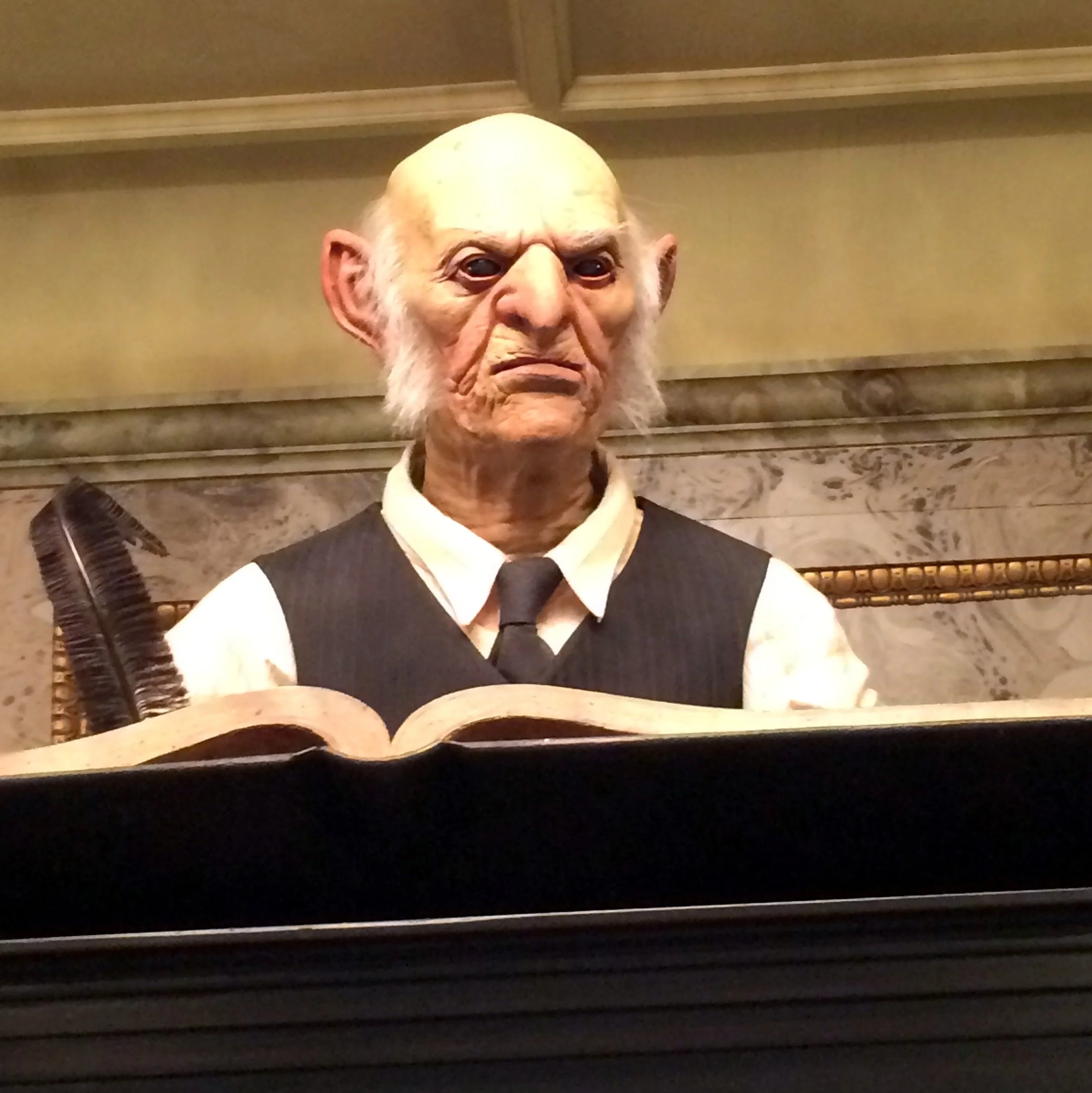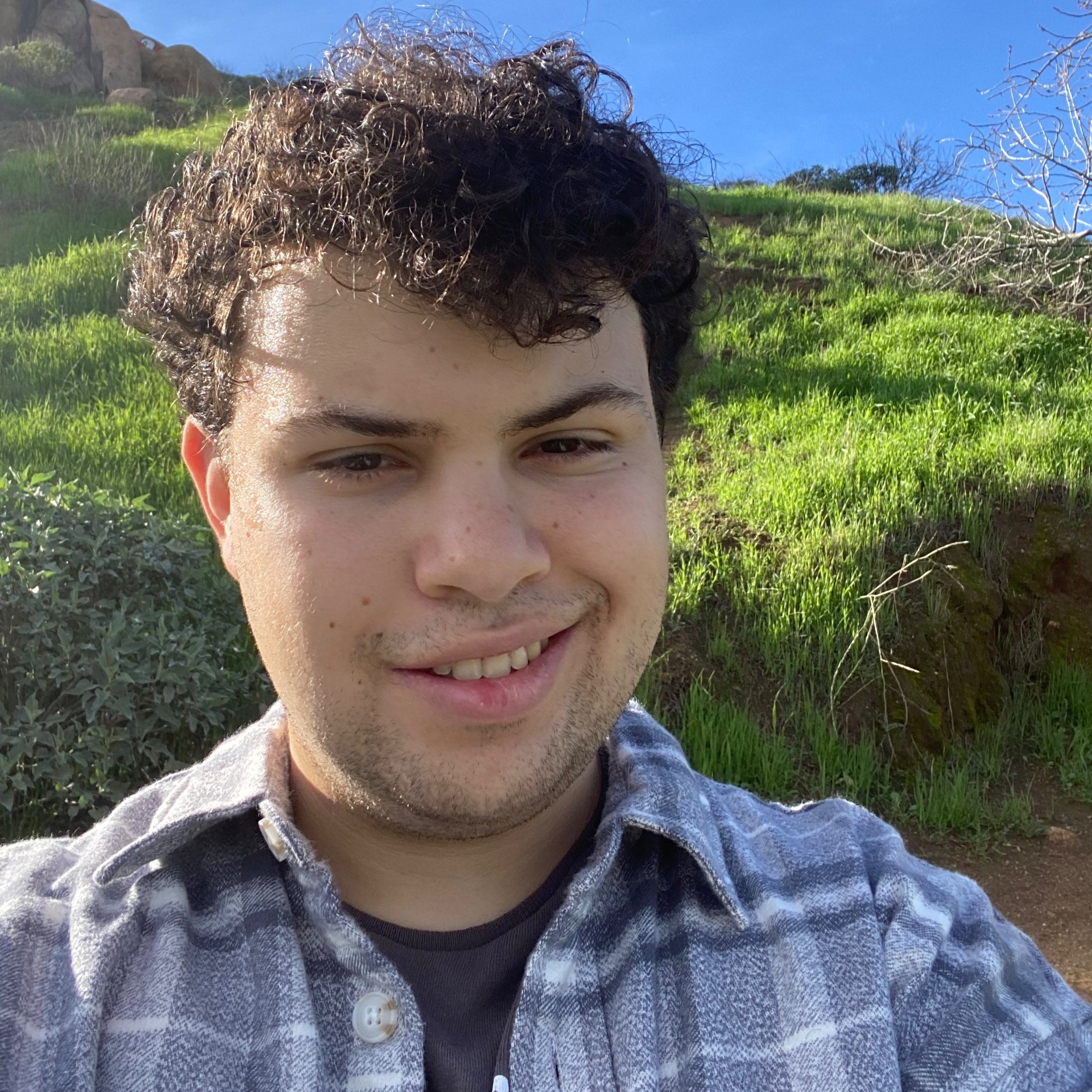How real stereotypes get pulled into fictional worlds.
Universal Studios - Diagon Alley - Gringotts Money Exchange - Goblin, jared422_80, CC BY 2.0
Gino Boccasile (1901-52) Jewish Bolshevik defending America New York Statue of Liberty, Gino Boccasile, CC BY-SA 4.0
On the left is a goblin from Harry Potter. Like all Harry Potter Goblins, he is known primarily for three things; his big nose, his slightly crummy personality, and his job at Gringotts, the underground bank that controls all of the money in the Wizarding world. On the right is an early 20th century anti-semitic piece of propaganda. Rather than acknowledge the disturbing similarities between their goblins and anti-semitic tropes, the Harry Potter team has decided to double down. On February 10, 2023, the video game Harry Potter Legacy was released, at one point attaining over 1.2 million simultaneous viewers on the Twitch video streaming platform, the most by any single player game ever. The focus of the game is a goblin rebellion taking place in the 1890s.
Orc, Wesnoth community artists of all Wesnoth Portraits, CC BY 3.0
For a genre known for its creativity, fantasy novels and games have a concerning trend of modeling their characters after racial stereotypes. In J.R.R Tolkein’s Lord of the Rings the intrinsically evil race of orcs were formed by the first Dark Lord Morgath. Tolkein described these Orcs as “squat, broad, flat-nosed, sallow-skinned, with wide mouths and slant eyes… degraded and repulsive versions of the (to Europeans) least lovely Mongol-types.” Elves, in comparison, were the first race created by the supreme god, are immune to illness, and, in the right conditions, functionally immortal. Tolkein’s novels and the early 2–’s film trilogy depict the elves as very pale, tall, and skinny, the classic European beauty standard. J.R.R. Tolkein is considered the grandfather of the fantasy genre. Hundreds of later creatives would go on to include his racial concepts in their books and games.
Half-Orc Barbarian, mephiston_l, CC BY-NC 2.0
Worldwide approximately 13.7 million people play Dungeons and Dragons, the world’s most popular role playing fantasy game. In this game racial differences are categorized and used to full effect. Half-Orcs, a clearly nonwhite mix between a human and an Orc, used to have a -2 debuff to intelligence, and currently are still frequently treated with mistrust by fellow players. Tieflings, infernal humanoid beings, canonically live in the very poor parts of human cities, where their backstories often must start.
However, it is not just racial stereotypes that are problematic, it also is the idea of race in fantasy as a whole. In Dungeons and Dragons, who your character is, what they are interested in, and what they are good at is largely dependent on your race. If a player so desires they can break these stereotypes, and, for example, create a half-orc Wizard, a class that relies mainly on intelligence. Although, even in these cases, characters usually fall into the “exception rule,” where they just manage to individually transcend the “flaws” of the rest of their race.
Toronto: book stacks at Toronto Reference Library, The City of Toronto, CC BY 2.0.
One of the best ways for things to change is to introduce new voices. Yet, between 1950 and 2018, 95% of fiction books written in the United States were by white authors. Since 2018 it hasn’t improved much. Recently, the publishing giant Penguin Random House found that 75% of the American authors it publishes are still white. This same racial disparity exists in fantasy role playing games as well.
Eugene Marshall is one of these new voices. In his new Zine, he proposes replacing the mechanic of “race” in Dungeons and Dragons with “Ancestry and culture." Ancestry would determine who your character’s parents are and what physical traits they passed on, such as height and the ability to see in the dark. Culture would determine the society you were raised in, and the traditions that society upheld. While it's not perfect, resources and authors like this provide a concrete step in the right direction.
Jeremy Giles
Jeremy is a Writing Seminars and International Studies major at Johns Hopkins University. He is an avid writer and the Co-Founder of Writers’ Warehouse, Johns Hopkins’ first creative writing group. He is an advocate for Indigenous rights, and studies how Indigenous philosophies can be used to help prevent climate change. Using his writing, he hopes to bring attention to underrepresented voices in today’s world.






